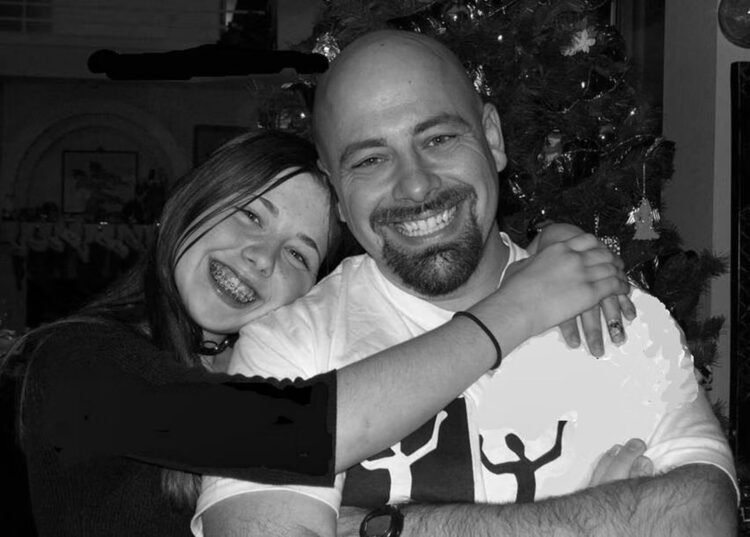Imagine waking up one morning and seeing your daughter, murdered 18 years ago, as the face of an AI chatbot… Unfortunately, there are more and more examples of unauthorized use of the faces and names of dead people. You can immediately resolve this situation with your lawyers if you are famous. For example, OpenAI attempted to use Scarlett Johansson’s voice without permission, and they had to withdraw it immediately. But what happens when an ordinary person faces such a situation? Jennifer Ann Crecente’s family is experiencing this drama and shouldering this burden themselves instead of the law. Unfortunately, the slow adaptation of the law to this new technology causes needless suffering for those left behind.
Our report will address the critical legal challenges in these cases and highlight why it’s essential not to look the other way. The implications are too serious, and ignoring them only allows such injustices to continue. In particular, the unauthorized use of a young girl named Jennifer’s name and picture by an artificial intelligence chatbot 18 years after her death is one of the most painful examples of this debate. You can find her uncle’s full statement on the matter here.
When AI turns your lost loved one into a chatbot
Jennifer Ann Crecente was just 18 years old when her life was tragically cut short. Jennifer Ann Crecente’s family spent years honoring their daughter as they struggled with her loss. According to her uncle, her father’s educational projects in Jennifer’s name and his participation in video game design competitions were important ways to keep her memory alive. One morning, however, Jennifer’s uncle was devastated by an email. On Character.ai, an AI-based chatbot platform, a bot had been created using Jennifer’s name and face. The family was not consulted for permission, and when they found out, they felt the pain all over again.
The chatbot became inaccessible after the family took the required actions. However, why was it the family’s responsibility to take these actions? The bot was only taken down after Jennifer’s uncle publicized the incident on social media. What if he hadn’t done so?
Thank you for bringing this to our attention. https://t.co/Ft9b0j47zQ has policies against impersonation and the Character using Ms. Crecente's name violates our policies. We are deleting it immediately and will examine whether further action is warranted.
— Character.AI (@character_ai) October 2, 2024
As Brian Crecente wrote in his blog post: “For some reason, seeing the smiling face of my Jenny-Penny plastered on an AI site next to her name, used as an identity for a chatbot, knocked the wind out of me. I still feel it, like waves of hot and cold rushing over me.”
This situation illustrates individual suffering and a huge legal and ethical problem. So why do we face these situations?
Are the rights of the dead and those left behind not protected?
The unauthorized use of the names, faces, and personalities of dead people creates huge gaps in existing laws. In most countries, while the personal rights of living people are strictly protected, no such protection exists for the dead. This means that there is little that families can do against the unauthorized use of their loved ones’ names and faces. From a legal point of view, it is a big problem that in most countries, such situations cannot be treated as abuse or a violation of rights.
Father Horrified By An AI Chatbot That Mimicked His Murdered Daughter via @forbes https://t.co/LoypMNg7uz
— Brian Crecente (@crecenteb) October 2, 2024
As Crecente put it: “The thing is, why is it on us to be resilient? Why do multibillion-dollar companies not bother to create ethical, guiding principles and functioning guardrails to prevent this from ever happening? Why is it up to the grieving and the aggrieved to report this to a company and hope they do the right thing after the fact?”
These questions point to the frustrating gaps in the regulations and the despair they cause people like Jennifer’s family and others in similar situations.
AI exploits the dead due to regulatory voids
These situations have legal and humane consequences that we can’t overlook. Such incidents are again shaking the efforts of bereaved families to preserve the memory of their loved ones. Given the mostly unregulated advancement of AI technology, we may encounter more situations in which AI tools use individuals’ personalities, names, and images without consent. Lawmakers and regulators must promptly take action to address these issues.
As illustrated in this unfortunate case, the misuse of AI technology jeopardizes the essence that defines humanity, prioritizing commercial interests. It is crucial for laws to regulate these issues swiftly and for companies to take their ethical responsibilities seriously to prevent further harm and abuse.
Image credit: Brian Crecente via Padandpixel





